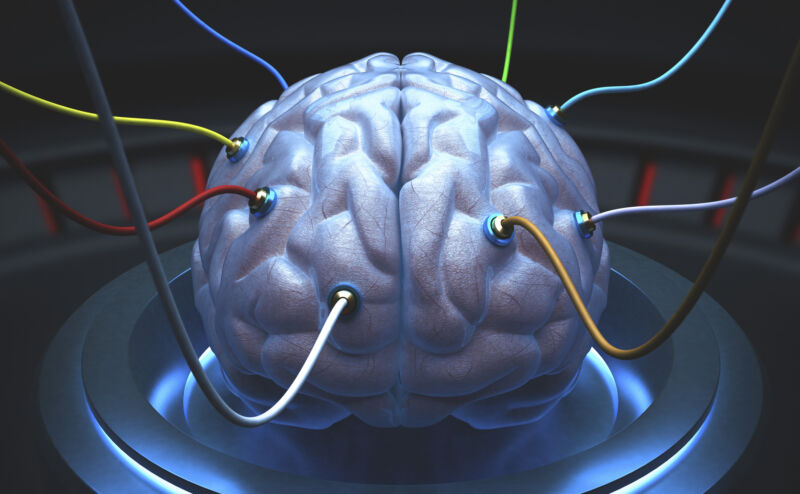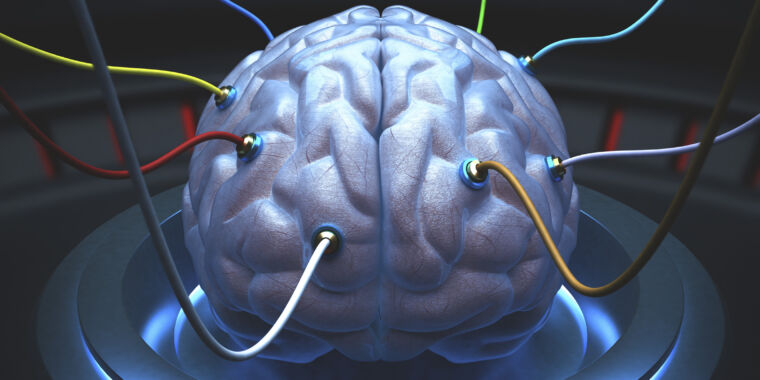
The takeaway of Robert Sapolsky’s Decided: A Science of Life With out Free Will is mainly the identical as that espoused by these Snickers commercials: You’re not you while you’re hungry. Besides in response to Sapolsky, there is no such thing as a “you”—the starvation is what dictates your conduct, alongside along with your stress stage, whether or not or not you had been born with fetal alcohol syndrome or grew up in a tradition that valorizes particular person freedoms versus one which prioritizes communal accountability or in one which believes in an omniscient, all-powerful, vengeful deity.
Hormones, neurotransmitters, and the way they’re affected by your present and historic circumstances—these are the one issues that decide how you’ll act and what choices you’ll make at these inflection factors while you’re known as upon to make impactful selections. And all of them are stuff you didn’t select and can’t management.
Sapolsky, a neurobiologist at Stanford College, isn’t averse to the notion of our having free will; it’s simply that he can’t discover it. And he’s regarded in every single place. He has studied—intensely—not solely neurobiology but in addition endocrinology, behavioral science, philosophy, primatology, criminology, psychiatry, sociology, anthropology, evolution, and historical past. Not a single one among these disciplines precludes free will, however all of them collectively do. All there’s to us is biology and the way in which that biology is affected by the environment. That’s it. We’re not, as Yoda recommended, luminous beings; we’re solely crude matter.
That is robust stuff for Individuals, who’re virtually hooked on our meritocratic, rags-to-riches, pull-yourself-up-by-your-bootstraps mythology. So in chapter 4, “The Delusion of Grit,” Sapolsky offers with individuals who overcome their circumstances (together with their foils, those that “squander” their success). The key of their success (and failure) all comes all the way down to their prefrontal cortex (PFC).
The PFC is famously the final a part of the mind to mature; it isn’t totally constructed in people till we’re in our mid-20s. Not as a result of it is tougher to construct—it’s fabricated from the identical elements as the remainder of the mind, which has been largely useful for the previous couple of many years. Quite, Sapolsky claims that it matures late particularly to allow it to grow to be the mind area most affected by the experiences we’ve in these first twenty years—to be taught from these experiences and have them form us. Grit, pluck, willpower, stick-to-it-iveness, and self-restraint are managed by the PFC and are formed by the setting we grew up in. And that’s an setting we don’t select or management.
“What the PFC is most about is making robust choices within the face of temptation—gratification postponement, long-term planning, impulse management, emotional regulation,” he writes. “The PFC is important for getting you to do the fitting factor when it’s the tougher factor to do.”
Troublesome choices take a ton of psychological vitality. That’s not a metaphor; the PFC consumes an immense quantity of mobile vitality. A lot in order that in case you’re hungry, drained, confused, or lack resilience since you had been born poor, which gave you chronically elevated glucocorticoid ranges, your PFC merely doesn’t have the juice to make good choices when it issues. Sapolsky factors out that “a considerable share of individuals incarcerated for violent crime have a historical past of concussive head trauma to the PFC.”
An bold purpose
“This e-book has a purpose,” Sapolsky writes. “To get folks to suppose in another way about ethical accountability, blame, and reward.” Though the world is wholly deterministic, we will, and have, discovered to alter our views and behaviors—each on the person and the societal ranges. We be taught and we alter when the environment modulates the identical molecules, genes, and neuronal pathways that managed our authentic views and behaviors. By the way, these are the identical molecules, genes, and neuronal pathways modulated when a sea slug learns to keep away from being shocked by a researcher—i.e., not free will.
Sapolsky’s acknowledged purpose of rethinking blame is exceedingly troublesome, even for him. He refers to Bettelheim, the self-hating Jew who insisted that autism in children is brought on by their chilly “fridge moms” as “a sick, sadistic fuck.” He calls Anders Breivik, who carried out the biggest terrorist assault in Norwegian historical past when he murdered 69 children at summer time camp in 2011, “a lump of narcissism and mediocrity” who “lastly discovered his folks amongst white supremacist troglodytes.”
But he thinks that punishing them is as unjust as punishing somebody with diabetes. He promotes a public health-based strategy to prison justice: Criminals must be faraway from society in order that they don’t additional hurt others, very similar to these with infectious ailments must be quarantined in order that they don’t hurt others. (As a result of that labored out nicely.)

